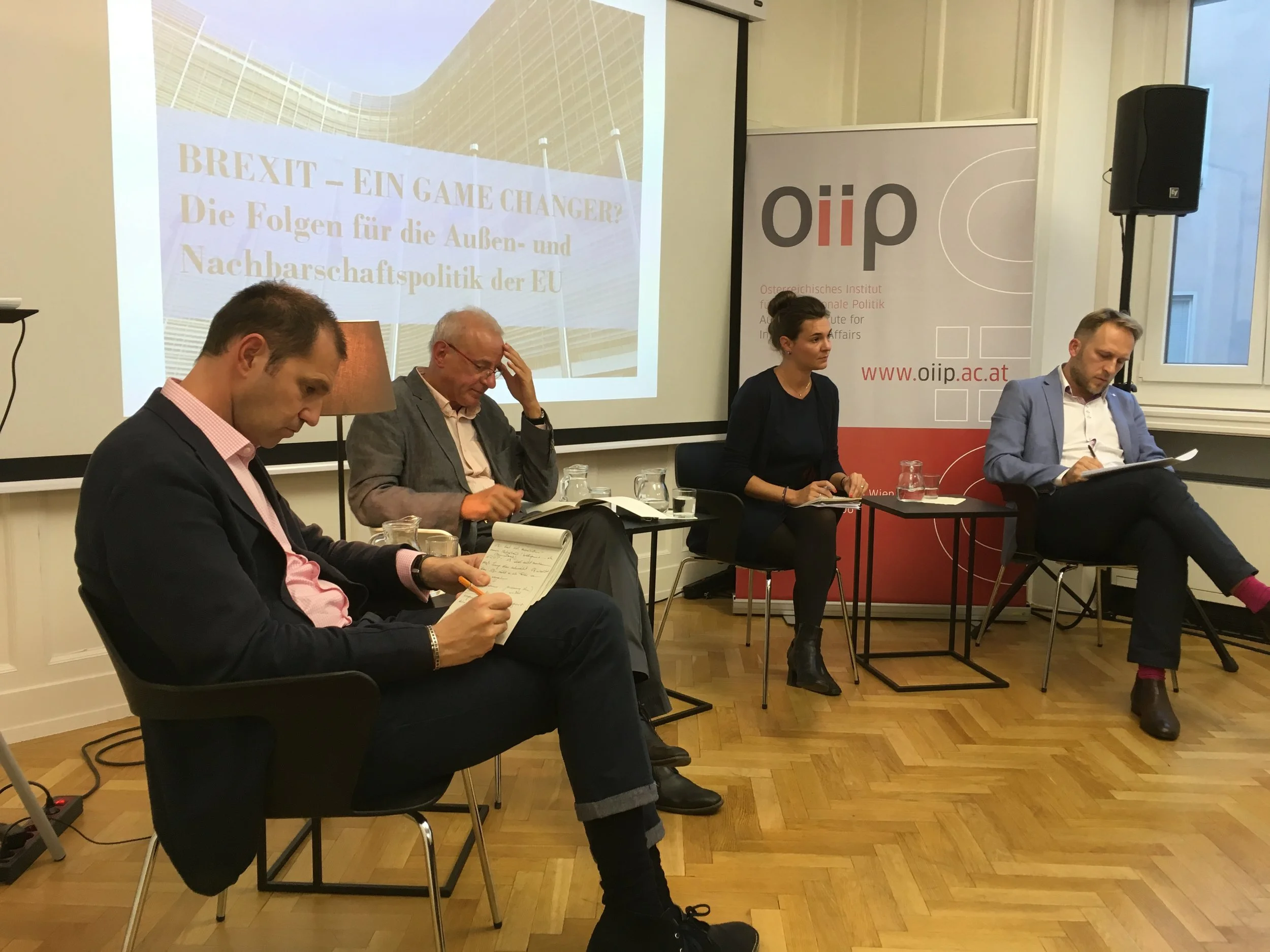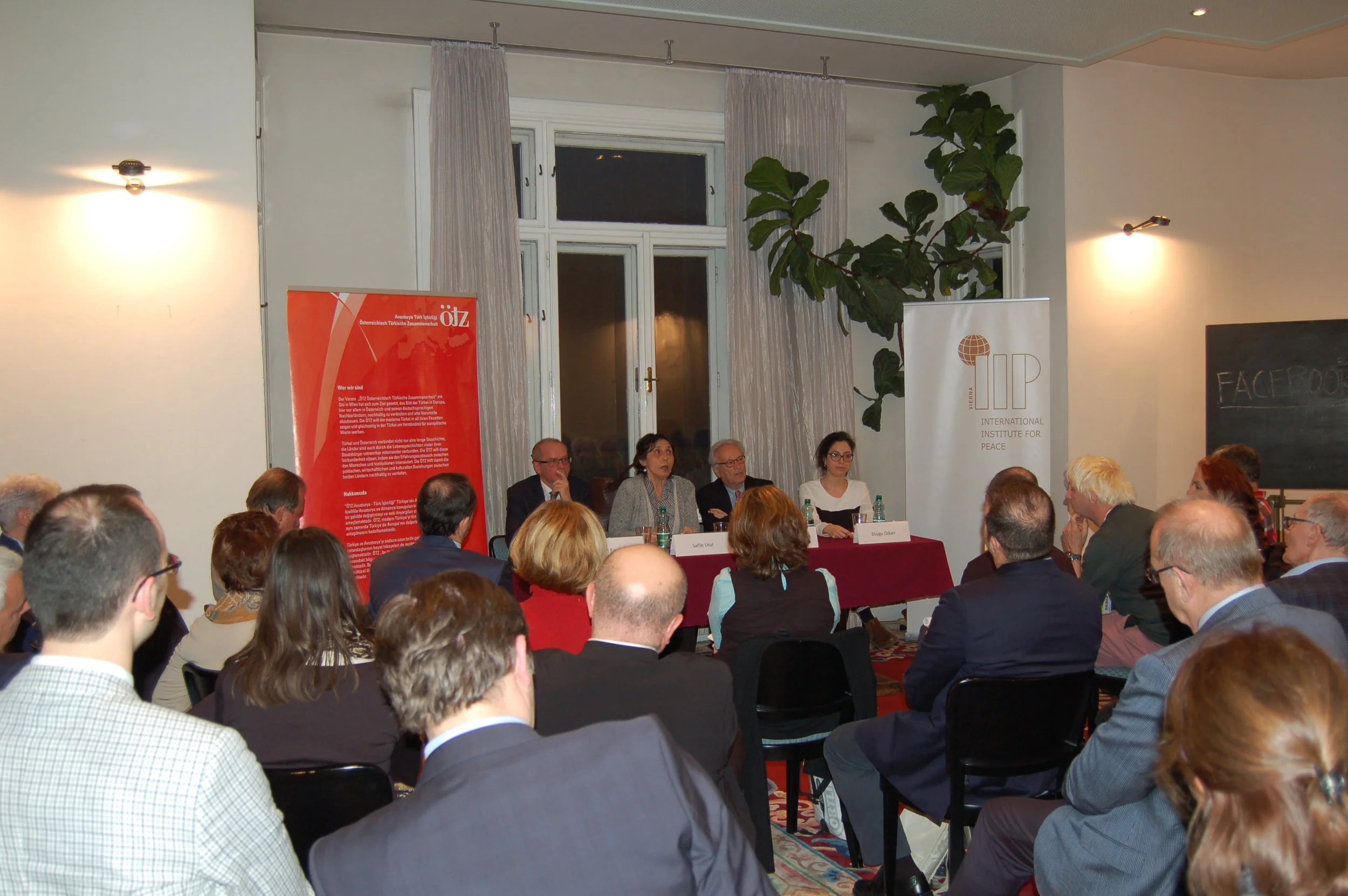In February 2016, as a consequence of the activation of the mutual defence clause of France after the ruthless terrorist attacks in Paris, the International Institute for Peace (IIP) and the Karl-Renner-Institute organised a conference in Vienna dealing with the topic of military interventions and EU-solidarity. In the aftermath, the IIP published an anthology which tries to tackle different issues in the framework of military interventions from various perspectives, which is available now.
Armed interventions in domestic conflicts have been named as ultima ratio in the last years in order to fulfil the International Responsibility to Protect (R2P) or the right of self-defence. There is to differ between UN-mandated and therefore legitimate interventions and uni- or multilateral interventions, which we can observe momentarily in Syria, where France, Great Britain and the USA are continuing the so called “War against terror”, which already started in Afghanistan in 2001. However, the questions of the reasonability, efficiency and extent of those interventions are at the very core of the discussion.
Which intentions are eventually leading to an armed intervention and on which theoretical and judicial basis is it exercised? Who is realizing them and which purposes are behind them? Which impacts did military interventions have in the past and which possibilities do states, like e.g. the neutral Austria or alliances such as EU and NATO have in or outside of such intervention-coalitions? When is an intervention seen as efficient and effective and sustainable? Can those interventions, as a consequence, lead to obligations of solidarity within the European Union and if so, to what kind of obligations? Which role did Europe have in this regard, which consequences did this interventionism have and is there a difference between legality and legitimacy in international relations?
About the book:
Authors from different scientific disciplines and countries as well as journalists and practitioners are addressing various questions with regard to the legitimacy, efficiency, extent and practices of military interventions from several perspectives.








